The participants of the Mayflower journey are credited with taking a particular version of the Bible with them to the new world. It’s known as the Geneva Bible, in honor of the very active community of Protestants in the city where it was printed. It predates the more famous King James Version (which Sutro also has) and continued to be produced for some years before being practically supplanted.
The Sutro Library owns a 1582 imprint of the bible which was originally printed in 1560. This later printing demonstrates two significant differences from the earlier one. The first printing was printed in Roman type, while our version is printed in black-letter. However, the more commonly ascribed difference is the use of the word ‘breeches’ to describe the plant based clothing Adam and Eve used to cover themselves. This printed edition among Geneva Bibles is known as the Breeches Bible.

There were multiple additional features which appeared in the printed text. Glosses, illustrations and more gave the reader a more direct understanding of the scriptures. In this period literacy and printing was empowering individuals to make decisions about their own faiths and directly challenged the authority of the priestly classes.
Our book includes 3 other works: Whole Booke of Psalms, printed in 1581; Concordances, printed in 1582; and the Book of Common Prayer, printed in 1582.
As you can imagine, cataloging a work of this historical importance and complexity is a significant challenge. Have a look at the deluge of notes in the record:
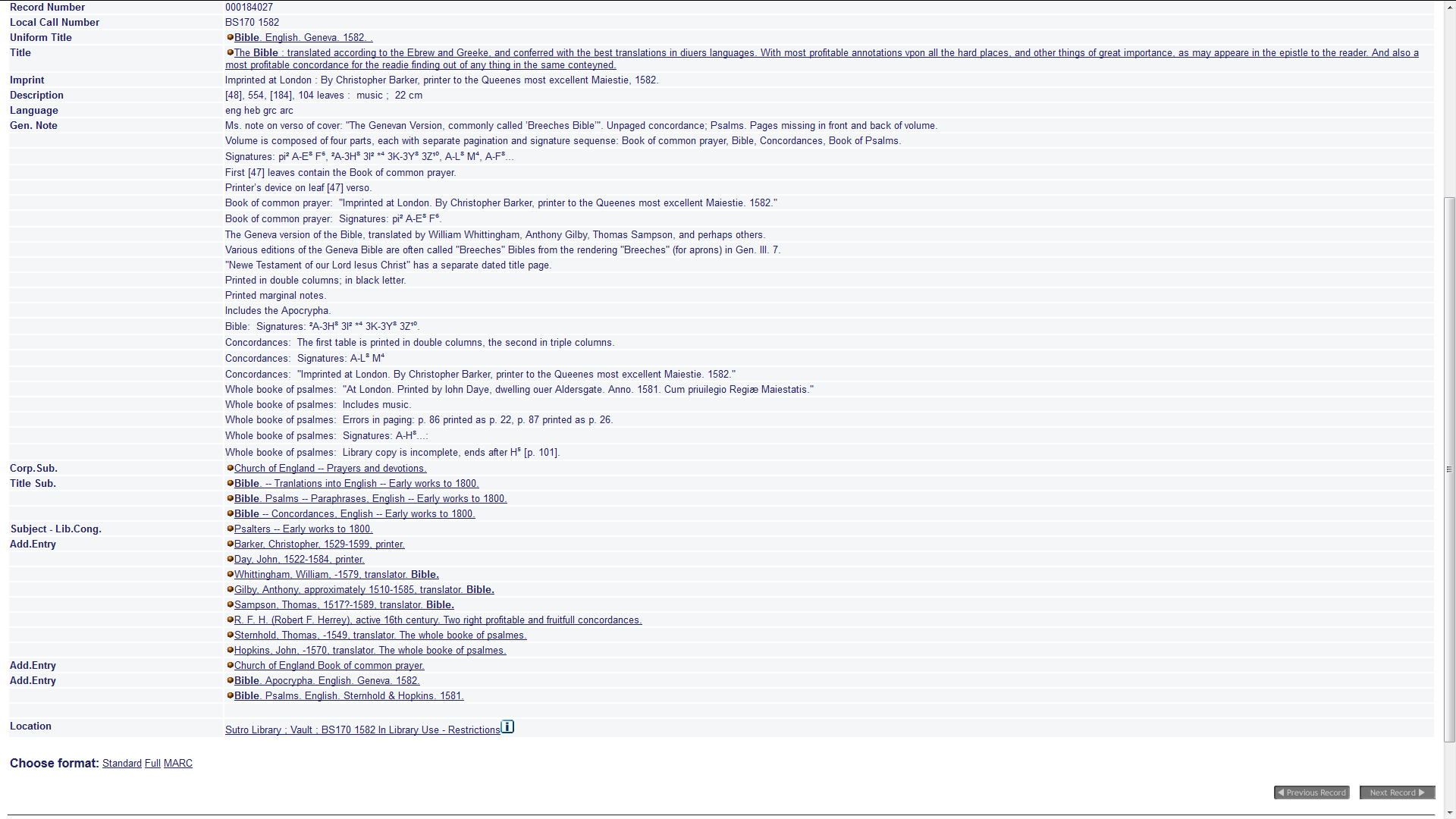
The devil is in the details, so without the careful work of an expert cataloging librarian, researchers would lack the information they need to identify materials of interest remotely. We are most grateful to our expert cataloger, Dan Taysom, for creating this amazing record for this special item.
Another perennial problem is condition. After 436 years of use, anyone would look a bit tired! We sent the volume in its tattered state to a professional conservator for treatment. Our priority as custodians is to ensure that materials continue to be accessible for hundreds of years into the future.
Here is the bible before conservation treatment:
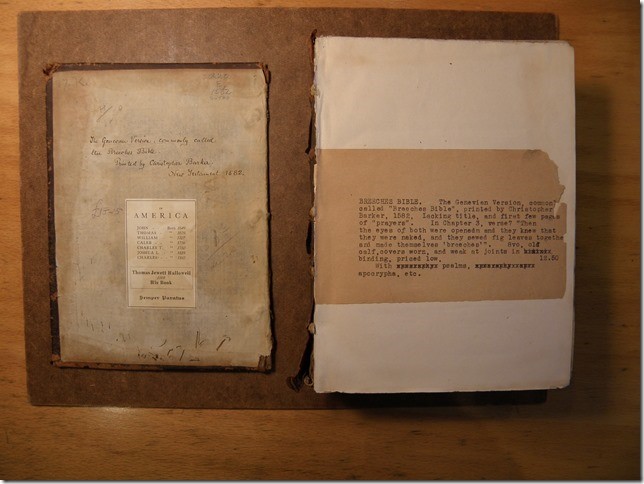
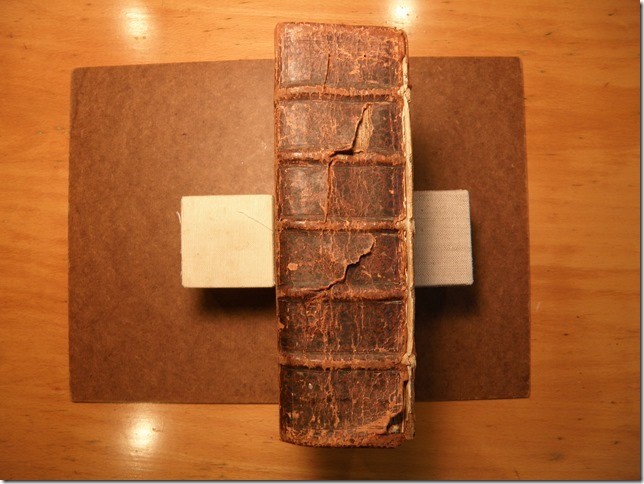
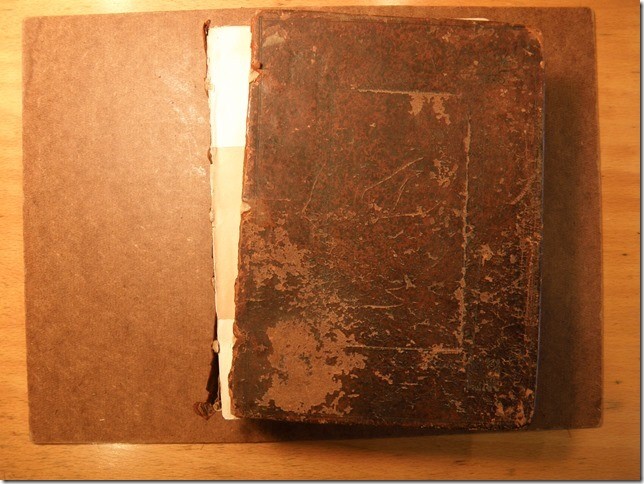
As you can see, the way the binding is damaged makes it very difficult to use. Handling a book in this condition will often result in further damage. It’s the conservator’s job to stabilize the binding, effect any necessary or integral repairs, but not necessarily hide the repairs or erase some of the books history. Restoration is the process of making something old look like-new. Conservation is the process of stabilizing something so that it will be usable, but maintaining whatever features have been added or changes which have occurred over time.
Here is the bible after treatment:
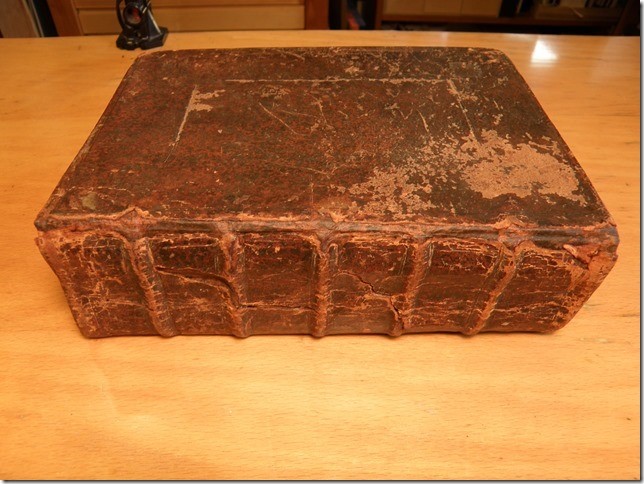
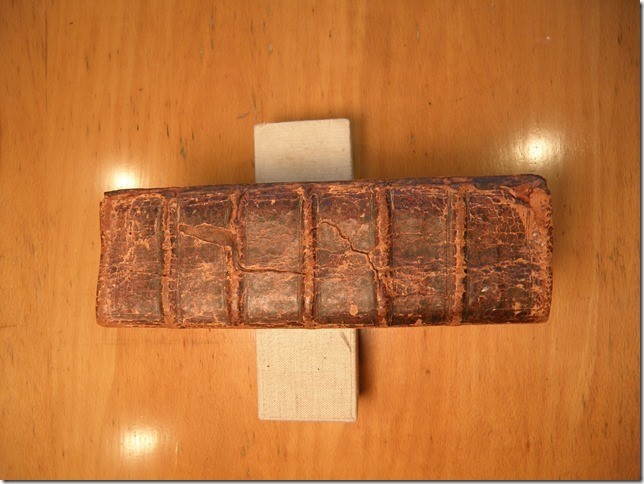
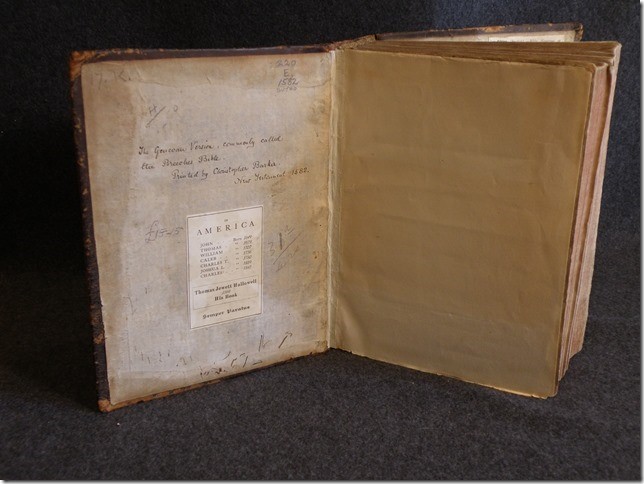
If you’d like to see this bible, or any other items from Adolph Sutro’s rare book collection, please email sutro@library.ca.gov or call 415-469-6100 to schedule an appointment. Make sure you mention the call number for this book: BS170 1582.
We wish to thank the California State Library Foundation for funding the conservation work on this bible and Sarah Elson of Sarah Elson Bookbinding, Menlo Park, for the pictures submitted for this article and for her outstanding conservation work.
[Originally published on the Sutro Library blog. This article was written by Sutro Library Librarian, Colyn Wohlmut, who has since assumed a new position at another institution. We wish her every success!]
No comments:
Post a Comment